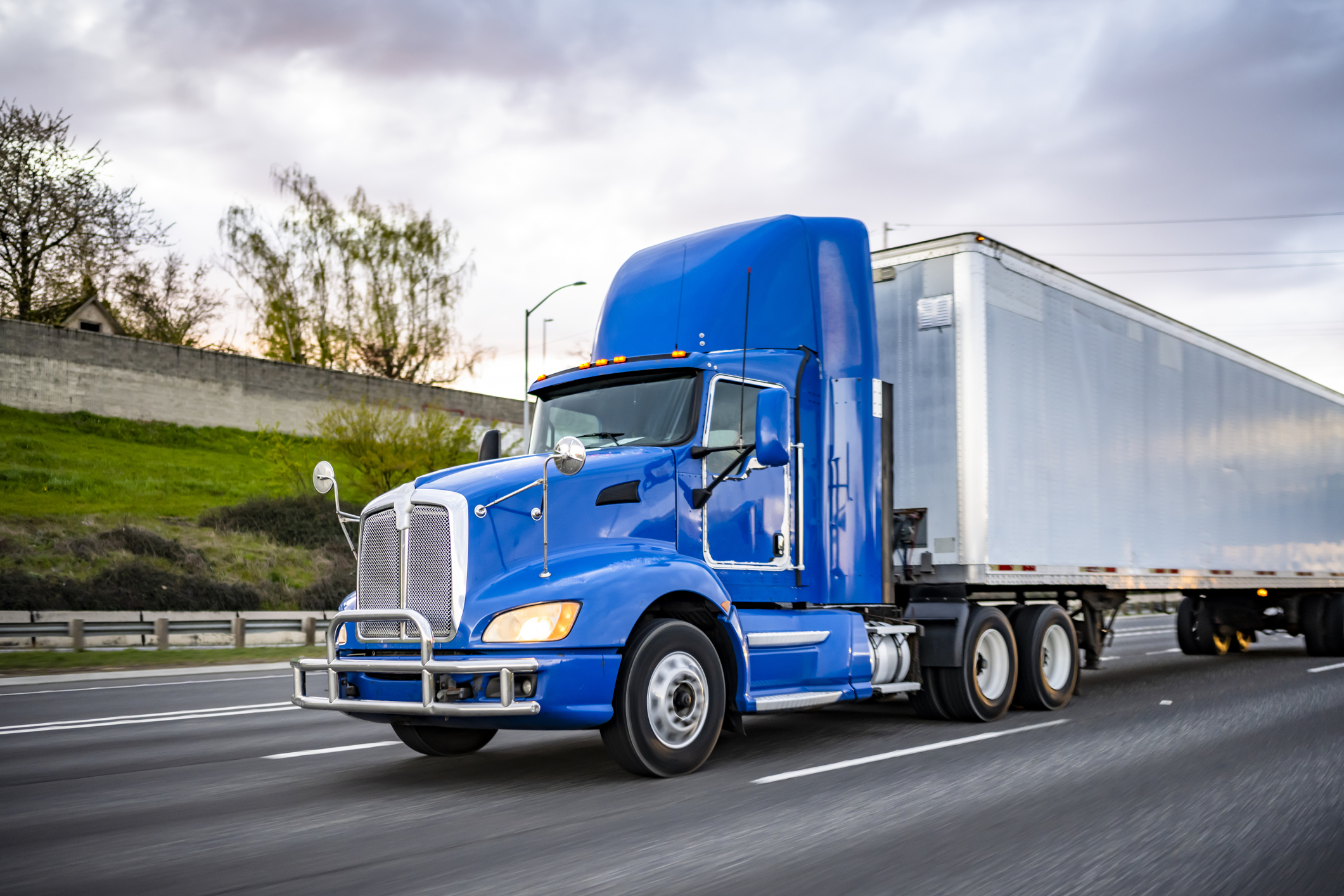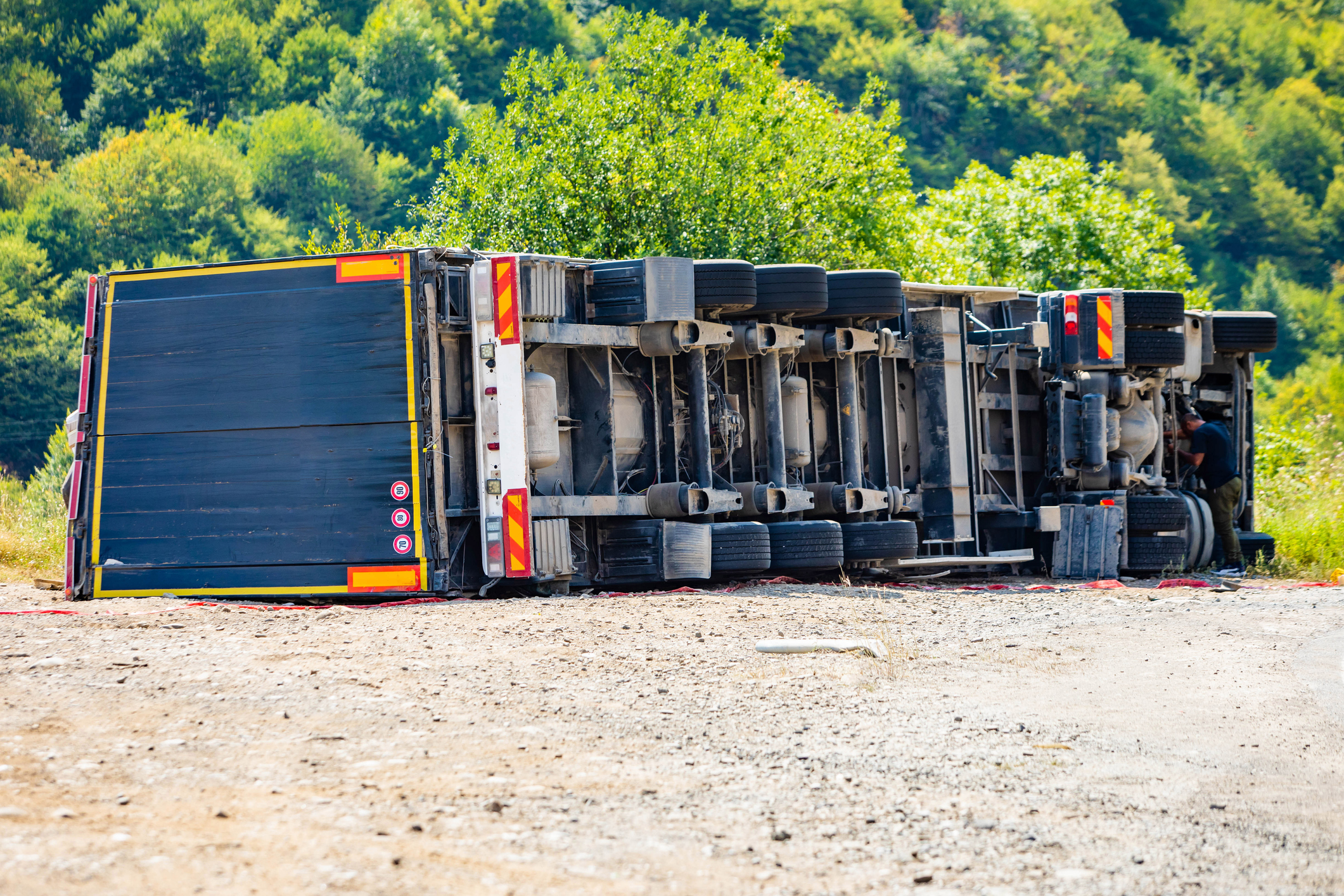Recent articles from Missourian news outlets report that the number of fatal auto accidents has increased in St. Louis and across the state, even amid the coronavirus pandemic.
If you or a loved one were injured in a truck accident, you already know how devastating these situations can be. The truck driver’s employer and insurance company will try and discredit your injury by trying to pay you off for far less than you deserve. If you were injured, you need money to pay for medical bills, lost income, and so many other expenses.
Don’t let the truck driver or their insurance company devalue your claim; let a St. Louis truck accident lawyer from Langdon & Emison represent you and work towards getting you every penny of what you deserve. Call (866) 931-2115 today.
Facts about truck accidents in St. Louis
From May 7, 2020, to May 6, 2021, 816 people were involved in 356 crashes in St. Louis County. Thanks to its location at the crux of seven interstates (I-44, I-55 I-64, I-70, I-270, I-170, and I-255) and four U.S. highways (US 40, US 50, US 61, and US 67), the city and area surrounding St. Louis is rife with truck accidents.
The most recent fatal crash data is taken from the National Highway and Traffic Safety Association’s (NHTSA) Fatality Analysis Reporting System (FARS) report. In 2018, 921 Missourians died in auto accidents, a number that is far too high.
But even more surprising is the number of accidents caused by someone else’s recklessness. When that recklessness was committed by a semi-truck driver, that driver should be held responsible for the injuries and property damage they caused.
What is the truck’s “black box” and what does it track?
A truck’s black box is an electronic device that records and stores valuable data. The device is usually located under the passenger seat or mounted onto the control module. The devices track, among other things, how long the trucker was driving, their speed at any given time, sudden braking, and any conversations between the trucker and their employer.
Retrievable data helps the federal government, trucking companies, insurance agencies, and investigators determine what caused an accident. Black boxes are hugely beneficial in truck accident injury cases because a St. Louis truck accident lawyer can use the data to prove that the trucker was acting negligently at the time of the accident.
For example, the data may show that the trucker was speeding or otherwise operating their vehicle responsibly, or was driving beyond the federal working hours limit at the time of the crash. The trucker’s employer and insurance company can’t argue with evidence showing that they caused or contributed to the accident.
“Black box” is a general term for recording devices, but there are actually two main types: electronic logging devices (ELDs) and event data recorders (EDRs).
Electronic logging devices
If present, the electronic logging device (ELD) is located in the engine, where it automatically records driving time. This ensures that truckers and their employers are compliant with the federally-mandated Records of Duty Status and Hours and Service (HOS).
The regulations were created and are enforced to make the trucking industry safer. In this context, “hours of service” refers to the maximum amount of time that truckers are allowed to be on duty. HOS regulations also clearly specify the number and length of rest periods. Truck drivers must follow a 14-hour “driving window,” an 11-hour driving limit, and a 60 hour/7-day or 70 hour/8-day limit.
Essentially, the 14-hour rule means that once a truck driver comes back on duty after 10 consecutive hours of being off-duty, they cannot drive more than 14 consecutive hours.
In a perfect world, these devices wouldn’t be necessary, because trucking companies would set realistic expectations for their drivers. Unfortunately, that hasn’t been the case, and the federal government had to step in to create laws to protect truck drivers and other motorists.
Many trucking companies exploit their employees and coerce them to work past the federal limit. This is not only dangerous but illegal, as working past the hours limit puts drivers at a higher risk of crashing and injuring themselves and others.
Event data recorders (EDRs)
While ELDs keep track of data for general compliance purposes, event data recorders (EDRs) record and store data in the moments before, during, and after a crash, which is the “event” mentioned in the name of the device. The types of data that EDRs monitor includes:
Configuration data
Truckers can adjust programmable parameters, such as the truck’s maximum speed, to meet their operational and performance needs. Usually, a truck technician will perform these changes. The EDR will show when and by whom changes were made.
Last stop record
The last stop record is a quick snapshot of an event (crash) that is triggered by the truck’s speed sensor if it registers the vehicle at 0 mph. The last stop record will also include information about the vehicle’s speed history up to 1.5 minutes before the last stop.
Incident event report
An incident event report (sudden deceleration/acceleration, hard stop, or hard brake event) is a report that is triggered by a rapid change in the vehicle speed sensor (VSS). In the event of a crash, a rapid change will almost always be an instant deceleration. Incident event reports can cover up to 20 minutes of vehicle speed, throttle and clutch position, cruise control status, engine load, RPM, and brake status before the crash.
Steps to take after a truck accident in St. Louis
After being in a truck accident, you’ll almost certainly feel disoriented. It’ll probably be difficult to get your bearings and have a firm grasp on your next steps. However, it’s important to act with a clear head and a good idea of what you should do after the accident.
Making the wrong move could jeopardize your case or insurance claim. Try to remember the following steps to take after being in a truck accident.
1. Move your vehicle to a safe location
If your car is driveable (vehicles are often inoperable if hit by a semi-truck), move it to the shoulder, or at least 10 feet from the roadway. Accidents involving big rigs often turn into pile-up crashes, and you definitely don’t want to be involved in that situation.
Put on your hazards and, if you and your passenger(s) are uninjured, remain in your vehicle until the police arrive.
2. Seek medical attention
Once you are in a safe location away from the road, check yourself and your passenger(s) for injuries. If there are visible injuries, call an ambulance. If your passenger is unconscious, call an ambulance. If you’re injured and need immediate care, don’t try and minimize your injuries or refuse to go with paramedics so you can stay behind and gather evidence. Your well-being is the priority, and remember – you can always return later and obtain the police report.
Even if you aren’t in pain after the accident, it’s a wise idea to visit your doctor. They can conduct a full physical examination and will be able to find injuries that would otherwise have been latent, which can prove extremely useful later on.
3. Call the police
Missouri law says you must notify the police if an accident results in:
- A person is injured or killed
- More than $500 of property damage
- A parked vehicle is damaged, and the owner cannot be immediately contacted
- Your insurance company requires you to call the police
These laws apply more directly to accidents between passenger vehicles. If you were in an accident with a truck, you should absolutely call the police. The risks are far greater in accidents involving a 40-ton vehicle, so even if the situation doesn’t seem very serious, it’s a good idea to call 911 as soon as you can on the scene.
The responding officer will create a police report that can prove invaluable to your insurance claim. Although these documents cannot be used as evidence in court, they play an enormous role in determining how much compensation the insurance company may award you.
Property damage also adds up quickly in truck accidents. It’s unlikely that your vehicle or belongings inside will suffer less than $500 in damage.
You should also be wary of any attempts the truck driver makes to steer you away from calling the police. Don’t take any money the trucker may offer you.
4. Exchange information with the truck driver
Once the truck driver leaves the scene of the accident, it can be difficult to track them down. There will certainly be lots going on at the scene, but try your best to get the following information:
- The trucker’s name, address, phone number, and email address
- The trucker’s employer’s name and contact information
- The trucker’s driver’s license number and license plate number
- The name of their insurance company and policy information
This information will make the claims process much easier. If you have questions about obtaining this information at the scene of the accident, don’t hesitate to contact a St. Louis truck accident lawyer at Langdon & Emison.
5. Gather evidence at the scene
Photographic evidence taken at the scene can help prove who was at fault in the accident as well as the severity of your injuries, the amount of property damage, and many other types of evidence.
You should only do this step if it’s safe to do so. If you are injured, your priority should be seeking immediate medical attention.
If it is safe and if you are not seriously injured, you should try and get photographs of the following, when applicable:
- The roadway where the accident occurred (include street names or highway signs), as well as any traffic signals or stop signs
- Weather conditions (snow piled up, wet roads, etc.)
- The damage to your vehicle, taken from several angles
- Any injuries to your person
If you were injured, you can keep a journal (preferably with photographs) tracking your recovery. This is a helpful way to demonstrate the severity of your injuries.
6. Notify your insurance company
Depending on the company and policy, you may be required to notify your insurance of the accident within a certain amount of time. It’s a good idea to let them know that you were in an accident as soon as possible before things get too complicated.
7. Hire a St. Louis truck accident attorney
Trucking companies are notorious for fighting and devaluing claims made against them or their drivers. If you were in an accident with a semi-truck, you need a formidable legal team who will work hard to hold the driver accountable and get you the compensation you deserve.
Don’t wait – in truck accident cases, time is not on your side. Call a St. Louis truck accident lawyer at Langdon & Emison today.
Common causes of truck accidents in St. Louis
Truck accidents can occur for a variety of reasons, some of which are out of the truck driver’s control. Unfortunately, many accidents are caused by the trucker’s or trucking company’s negligent actions.
The Federal Motor Carrier Safety Administration (FMCSA) conducted widespread research on the most common causes of truck accidents. Their work culminated in the Large Truck Causation Study, the total sample of which included 963 crashes. Here’s what the study found regarding the most common causes of truck accidents:
Vehicle brake problems
Brake issues were cited in 29% of studied crashes (41,000 trucks), making it the top cause of truck accidents. These issues can be attributed to poor vehicle maintenance, negligence on the part of the servicing company, or a manufacturer’s defective product.
Speeding
At 23%, speeding was the second most common factor in truck accidents, meaning 23% of truckers (32,000 trucks) were “traveling too fast for conditions” as the FMCSA defines. These accidents can occur due to excessive speed itself, but more often, excessive speed causes the truck driver to lose control while maneuvering.
Drug use
Over-the-counter drug abuse is a pervasive issue in the trucking industry, particularly stimulants that truckers use to stay awake and drive for longer periods of time. According to the FMCSA study, 17% of truck accidents (25,000 trucks) involved over-the-counter drug use, while 2% involved illegal drugs like methamphetamine.
Driver fatigue
Thirteen percent of accidents (18,000 trucks) included in the survey involved a fatigued truck driver. Unfortunately, many trucking companies fail to comply with federal work limits, encouraging or sometimes forcing their drivers to skip breaks and continue driving.
The industry often places unrealistic time restraints on drivers, expecting them to adhere to a tight schedule. These practices lead directly to drowsy driving, which is extremely dangerous given the size and weight of a semi-truck.
Illegal maneuvers
Nine percent of accidents (13,000 trucks) in the FMCSA study involved an illegal maneuver prior to the crash. Illegal maneuvers include unlawful passing, turning from the wrong lane, U-turns in prohibited areas, and more.
Distractions
Truck drivers are aware that their vehicles can cause devastating injury or death, but unfortunately, many engage in distracting activities that take their eyes off the road, putting themselves and countless others in danger.
Distractions, such as texting, changing radio stations, and eating made up 2% of accidents in the FMCSA study. Outside distractions, such as looking at a passing billboard, person, or building made up 8% of accidents. Just one second of distraction can lead to a dangerous or deadly collision.
Common types of truck accidents in St. Louis
Cargo truck accident
You may have observed the presence of large cargo trucks transporting goods on our city streets and in residential areas. Unfortunately, these substantial vehicles have the potential to collide with other vehicles or pedestrians, causing severe injuries. Determining liability for such accidents can be challenging without the guidance of experienced legal professionals.
Jackknife accident
A jackknife truck accident occurs when the trailer connected to a commercial truck swings out and creates an angle with the tractor, resembling an open jackknife. This type of collision can have severe consequences, leading to significant harm and even fatalities for the vehicles involved in the vicinity of the tractor-trailer.
Rollover accident
Rollover incidents pose a constant threat, particularly when a tractor-trailer is involved, as they can prove to be fatal. The elevated center of gravity on these tall vehicles increases their susceptibility to tipping over when drivers are compelled to make sudden swerves or apply abrupt braking.
If you happen to be in a passenger car adjacent to the truck during such an event, there is a risk of being crushed or forcefully pushed into other vehicles if the large rig topples onto your vehicle.
Cost to hire a truck accident attorney in St. Louis
Langdon & Emison operates on a contingency fee basis, meaning that you only have to pay us if we win your case and you’re awarded compensation. We understand that truck accident-related injuries take a toll on our clients, and they often struggle to keep up with the medical bills on top of their other expenses.
Our contingency fee is the standard 33.33%, and we are happy to pay your court fees as well. For more information regarding payment, contact our St. Louis truck accident lawyers at (866) 931-2115.
What damages can I collect in a truck accident?
If you weren’t at fault for the truck accident that caused your injuries, you have the right to file a personal injury claim and collect compensatory damages from the other party.
A St. Louis truck accident lawyer from the renowned Langdon & Emison firm will work hard to get you the money you deserve, all while protecting your interests and defending your legal rights.
Depending on the case, you may be able to receive economic, non-economic (general), and/or punitive damages.
Economic damages
Economic damages are the quantifiable, easily measurable monetary losses that you suffered as a result of the truck accident.
These include medical bills, lost income, and property damage. Here’s some more detail on exactly what may be included:
- Emergency transportation
- Hospital and doctor’s office bills
- Prescription medications
- Rehabilitative care and physical therapy
- Future medical bills
- Missed work time due to injuries or medical treatment
- Use of paid time off or sick leave following the accident
- Loss of future earning capacity
- Vehicle damage
- Damage to personal property in the vehicle (jewelry, electronics, etc.)
Non-economic damages
Unlike economic damages, general (non-economic) damages are not easily quantifiable because they refer to more abstract losses. They are without official documentation, such as a doctor’s note or hospital bill. As such, it will likely take deliberation and extra time to determine how much money you owed for these types of damages.
You may be able to receive the following types of general damages:
- Pain and suffering
- Loss of enjoyment of life
- Diminished quality of life
- Fear and humiliation
- Anxiety and depression
- Post-traumatic stress disorder (PTSD)
- Insomnia
Punitive damages
Punitive damages are additional rewards on top of economic and general damages. These are far less common than the other two types of damages because they require an especially wrongful or intentional act to have occurred.
For example, you may be awarded punitive damages if the person driving the truck was drunk or was so overcome with road rage that they hit you.
Punitive damages are only awarded when the court sees fit to punish the defendant (truck driver) for especially egregious actions.
Missouri law states that the injured party can only keep 50% of the jury-awarded punitive damages. The other 50% will be turned over to the state.
Let our St. Louis truck accident attorney help
Semi-trucks cause the most dangerous, expensive accidents in Missouri. Due to their size, weight, and cargo, these vehicles can cause devastating injuries, including brain and spinal cord injuries.
If you were injured in a truck accident, don’t let the trucker’s insurance company deny or devalue your claim. You’ve already suffered injuries; you don’t have to suffer financial downfall too.
For the most formidable representation and dedicated legal advisory, contact Langdon & Emison today.
Truck accident FAQ
What should I do if someone from the trucking insurance company calls me before I’ve picked a truck accident lawyer?
This is probably the most important thing to remember when dealing with the other party’s insurance company: you are under no obligation to tell them anything. The insurance company wants to catch you off guard and get you to say something that will compromise your claim.
If you want, you can confirm that they have the correct person on the phone, but you should tell them that you’ll call them back once you have a lawyer. Don’t answer any of their questions besides asking you your name.
Whatever you do, don’t say things like “I’m sorry,” “I didn’t mean to,” or “I’m actually not in that much pain.” All of these statements can be used against you to devalue your claim.









